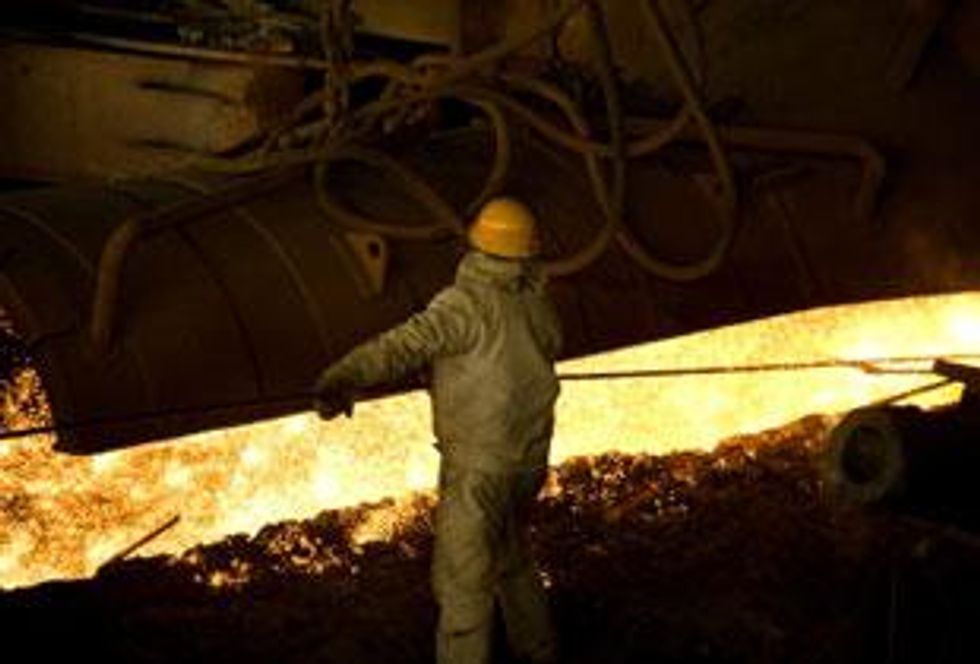Can Recycled Copper Help Support the World’s Growing Demand?
As a metal that does not easily degrade or lose its chemical and physical properties, copper is amenable to recycling. Because of this, recycled copper is sometimes considered when calculating world coppers reserves. But can the scrap copper market help support the growing demand for the red metal?
By Leia Toovey- Exclusive to Copper Investing News
Copper is a metal that does not easily degrade or lose its chemical and physical properties thereby making it amenable to recycling. As such, the ongoing need for copper can be met by both mining new ore and recycling. For that reason existing copper reservoirs are sometimes considered when calculating world copper reserves.While it is necessary to mine new ore to keep up with the world’s growing need for copper, recycling can be just as important with both environmental and economical advantages. Recycling is beneficial to the environment because it offers energy savings, and waste-reduction. Because the red metal can hold its value, retaining up to 90 percent of its original value, recycling copper can be cheaper than to mining for new resources.
Copper-based products have a wide-range of lifespans. Electrical devices may only last a few years, wiring and plumbing in houses may last decades, and old roofing and architecture can last hundreds of years. As a result, there is a constant availability of copper from goods that are no longer useful. While these goods may no longer operate as they were intended, the copper they contain is often just as good as new. Assuming an average lifespan of 30 years, it is estimated that for most copper products 80-85 percent is recycled.
Purity
Not all recycled copper is created equal. What recycled copper can be used for depends on the purity of metal required. Critical electrical applications require the purest of copper, to ensure proper and safe electrical conductivity. High-grade primary (mined) copper works best for these applications; however, in some cases uncontaminated recycled scrap copper can be refined back to the proper purity to be used in wiring applications. Lower grades of scrap can be used to make copper alloys or chemicals. Due to the large amount of impurities, scrap brass can only be reused for other brass items.
Scrap copper
There are two main types of scrap copper. “Old scrap” which has been previously used, and “new scrap” which are left-over pieces of copper from factories. The majority of scrap copper is returned from a previous user and directly melted. How much “old” copper is recycled depends on the current copper market. In times of high prices and demand, more “old copper” is processed. A variety of items provide this post-consumer copper scrap, including old electronics, automobiles and air conditioners. Unfortunately, because selling scrap copper can be quite profitable, many thieves break into properties, schools, and churches and steel copper from items such as air conditioners to sell to a scrap collector.
Recycling process
High quality copper can be recycled by a simple process in which the copper is melted, and then analyzed for the proper purity. Copper that is not “pure enough” goes through a more complicated process in which it is remitted, cast into an anode, and then electrolytically refined. However, not all copper with impurities can be refined down to the proper “Grade A” copper used in wiring. Copper and copper alloy scraps that are very contaminated and unsuitable for the simple recycling process can either go through a more complicated recycling process, or used in one of the many copper compounds essential for use in the industry and agriculture.
Statistics
In 2008, the International Copper Supply Group estimated that 35 percent of copper consumption came from recycled copper. Throughout history about 700 billion pounds of copper have been mined, with the majority still in use today. The copper and copper alloy industries rely on the fact that scrap copper is easily and economically used and reused.
Economics
The scrap copper market is, as we have addressed, a large market, and although it is directly influenced by the broader copper market, the scrap market has its own supply and demand considerations. In the second part of this recycling copper series we will take a deeper look into the fundamentals of the copper scrap market.






